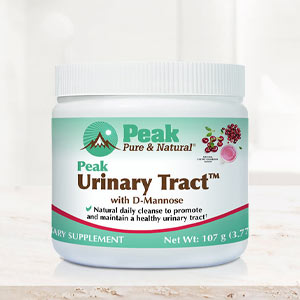Get Easy Health Digest™ in your inbox and don’t miss a thing when you subscribe today. Plus, get the free bonus report, Mother Nature’s Tips, Tricks and Remedies for Cholesterol, Blood Pressure & Blood Sugar as my way of saying welcome to the community!
3 prostate warning signs you shouldn’t ignore

If there’s one thing that the majority of men can expect as they age, it’s prostate problems.
In fact, over half of men will suffer from an enlarged prostate by the time they reach sixty. And up to nine in ten men will experience enlargement of the gland by age 85.
Unfortunately, as the condition becomes more severe, it can also lead to problems in the bedroom, causing issues like erectile dysfunction.
This makes recognizing early warning signs of an enlarged prostate vital to a man’s sexual and overall health.
Here are the three most common signs of prostate enlargement that you shouldn’t ignore…
#1 – Increased frequency of urination
Because the prostate gland sits just below the bladder, it can have a significant impact on urination. And this includes increasing how often you feel the need to ‘go’, especially at night.
That’s because when the prostate becomes enlarged (also known as benign prostatic hyperplasia or BPH) it puts pressure on the urethra, the thin tube that carries urine out of the body. This pressure means that your bladder has to contract with more force to push urine through that tube.
This then irritates your bladder, leading to increasing contractions and a premature urge to urinate – even when there’s only a small amount of urine in the bladder.
Over time, the need to push harder to force out urine and the irritation it causes lead to a thickening of the bladder walls. This reduces its ability to hold larger volumes of urine, perpetuating the cycle of increased frequency of urination, sometimes also called overactive bladder.
#2 – Difficulty with urination
Because your bladder has to work harder to push through the narrow urethra caused by an enlarged prostate, it can be more difficult to ‘go’ than it used to be. You may have difficulty starting the urine flow. And once the flow starts, it might be weaker than it should be.
Additionally, it can feel like there is still urine in your bladder once you’re finished. You also might dribble shortly after urination, even when your bladder feels empty, since the muscles around the urethra may not be able to squeeze as hard as they once did.
#3 – Inability to urinate
Finally, the most severe prostate warning sign is an inability to ‘go’ at all. This can occur when an enlarged prostate completely blocks your urethra, or it can be due to a bladder infection, which occurs more commonly with BPH. Urinary tract infections may also become frequent.
This is a medical emergency that requires an immediate hospital visit, since it can lead to permanent kidney damage.
Tips for long-term prostate health
Because prostate issues can lead to issues like the kidney damage we just talked about and sexual dysfunction, it’s important to talk to your doctor if you have any of these warning signs. This also allows your doctor to rule out any issues other than BPH that could be causing your symptoms, including infection.
The good news is that if you’re living with prostate issues, lifestyle changes can help. Easy-to-implement tips for long-term prostate health include:
- Reducing or eliminating alcohol and caffeine consumption
- Getting regular exercise
- Reducing stress in order to reduce the urge to ‘go’
- Drinking small amounts of fluid throughout the day, instead of large amounts all at once
- Avoiding drinking fluids right before bed
- Using the bathroom as soon as you feel the urge
- Practicing double-voiding by emptying the bladder, waiting a second and then emptying again
- Avoiding medications that reduce bladder contraction and make it harder to urinate, like decongestants and antihistamines
Over time, several natural remedies have proven their worth in supporting a healthy prostate. Those always at the top of the list include:
- Saw Palmetto appears to reduce levels of dihydrotestosterone (DHT), a hormone which, at elevated levels, causes the prostate to become enlarged.
- Beta-Sitosterol. Studies show that beta-sitosterol can help improve urinary flow rates, reducing the amount of urine left in the bladder after urination and improving overall quality of life.
- Pygeum Bark Extract. Although pygeum has been studied for a variety of ailments, it has demonstrated the most promise for the management of an enlarged prostate, including calming the frequent urge to go.
- Pumpkin Seed. Double-blind scientific studies have shown that pumpkin seed extract helps urinary flow, voiding time, and reduces leftover urine volume in men with prostate concerns.
Editor’s note: Did you know that when you take your body from acid to alkaline you can boost your energy, lose weight, soothe digestion, avoid illness and achieve wellness? Click here to discover The Alkaline Secret to Ultimate Vitality and revive your life today!
Source:
Slideshow: A Visual Guide to Enlarged Prostate (BPH) – WebMD














